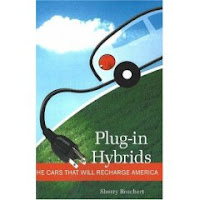Tort reform: Go big, Obama!
Tort reform: Go big, Obama!
Anne B. Butterfield, September 14, 2009 (NewEnergyNews)
President Obama and Democrats: flummox and rearrange your opposition. Go big on medical malpractice reform.
The nod the president gave to the cause of tort reform in his address to Congress would begin in what he termed "a few pilot projects" as once described George W. Bush. Republicans who were slumped in their seats, some glowering into Blackberries, rose up to give wildly approving applause. But what would really cause Republicans to rethink their existence would be if Democrats went after tort reform loudly to the effect of taking this pet cause away from them.
Vigorous tort reform from the Democrats would be like taking the surfboards away from Republicans and turning up the waves. The strong could get back to a board and surf, but the weak would flail and drown. The Dems needs to impose this disruption on a party whose chairman Michael Steele barked, "I don`t do policy" when asked if he felt it was right for all Americans to be required to pay for insurance. A party that snoozed on the chance to reform health care when it had the majority and now panders to deathers and birthers.
For these mad dogs baying, their cause needs to be stolen and their bluff needs to be called.
According to Republican talking points, and there is research to back up the hype, there are billions of dollars per year wasted in "defensive medicine," that practice in which doctors order marginally or wholly unneeded tests, procedures and hospital admissions, to protect against a later suit. Up to a quarter of health care costs are "defensive," and some research says they could tally $200 billion per year. So claims conservative columnist Charles Krauthammer.
Into that treasure trove of financial value a smart liberal should say: "Drill baby drill."
"Anyone who denies there is a crisis in medical malpractice is probably a trial lawyer," said Barack Obama in 1996. Trial lawyers have long been the ally of Democrats, but, in the estimation of Bob Beckel, Walter Mondale`s campaign manager, they would have nowhere to go if the Democrats reduced their hunting grounds through malpractice reform.
American medical negligence is the most hazardous in the developed world with around 195,000 unnecessary deaths per year. All of our docs` super costly defensive medicine hasn`t given us good results.
Some cling to the notion that the way to improve outcomes from doctors is to sue them for errors. In reality, dangerous doc`s should be censured or expelled by an authoritative body. Some suggest that medical complaints be heard by expert "medical courts" which can quickly award damages on a predictable scale to patients and families -- and for the community would reprimand or strip the license from dangerous doctors.
For me this is familiar story: When my mom had a needle biopsy to find the meaning of a shadow in her lung, the doctor failed to get a medically diagnostic sample. So when he said to her, "I have good news and bad -- you don`t have cancer, also, I collapsed your lung so you have to stick around," he had no basis for saying the former, and he failed to use the latter to get a proper sample. He wrote her warrant to an early and merciless death, and wrote himself a ticket to a whopping malpractice suit. But my mom decided she "doesn`t dance on worms" and simply wrote him up for the state`s medical board and died in peace. He was reprimanded, put on probation, and the decisiveness of the process proved useful when auditors later questioned her estate.
Not only is it silly to talk about lowering costs of care without medical malpractice reform -- we probably cannot get greenhouse gas emissions under control without tort reform. Businesses and municipal governments think they cannot turn down the lights for fear an intruder will sue for their ankle sprained in the dark.
The threat of suit has been robbing our society with a paper gun for decades making trial lawyers a parasitic force in our economy. How far we have come from the brave and self-reliant people who founded this country. All of this has to change, as well as our caustic political landscape.












 Plug-in Hybrids, The Cars That Will Recharge America
Plug-in Hybrids, The Cars That Will Recharge America Oil On The Brain
Oil On The Brain